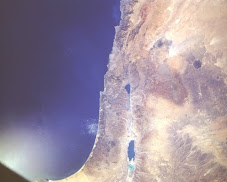
[The following article is not only a good example of what is wrong with both the Pakistani and the Indian media, it is also an excellent example of how American influence distorts what and how is reported in those media. Notice that in this report, the Indian writer cited, tip-toes around the malevolent American intrusion into India's state affairs, and the Pakistani writer ignores the Indian's lack of candor and proceeds to join him in the tip-toeing around any examples that reveal the worst American intrusion into Pakistan's affairs. This is the essence of the CIA formula for subverting any nation, first make a nation's leaders complicit in criminal actions, then undertake new criminal actions which they dare not report to anyone else. The CIA helped both India and Pakistan in their attacks upon the other, now neither side dares to expose American subversion in the region, for fear of exposing their own country's complicity in those crimes.]
By Moayyed Jafri
LAHORE: India and Pakistan must work together in order to keep the American influence out of South Asia, said Prem Shankar Jha, former editor of the Economic Times, Financial Express and Hindustan Times.
Citing an example of the American influence in the region, the renowned Indian journalist said, “India has nothing to do with Afghanistan, which does not share any borders with India, but the Indians were allowed to establish their machinery by the Americans there, which implies that America would be at one hand with Pakistan and at the other with India, turning our two countries against each other”.
He said the US, intentionally or unintentionally, treats India and Pakistan differently on issues so as to develop dissent between the two countries. Thus, he said, the Afghanistan issue has particularly served as a wake-up call for both India and Pakistan, demanding that they need to develop a mutually agreed common strategy for Afghanistan, besides all other such issues where American policy line divides the neighboring nations.
Prem Shankar Jha praised former foreign minister Khurshid Mahmood Kasuri, saying that Kasuri proved himself a brave man enough to openly dismiss the much-touted allegation that Indian Prime Minister Manmohan Singh had backed out of the Kashmir resolution framework which had been agreed by both the countries.
He said Pakistan’s then president Pervez Musharraf had categorically said that he could not sell the mutually agreed framework to his nation because of the chief justice’s movement, which had made him unpopular, and thus he requested that he needed time for it all to settle.
Expressing his reservations over the recently-hyped issue of water between the two countries, he said the Aman Ki Asha dialogue has revealed that this issue has been misreported, exaggerated and intentionally whipped up by some agencies in Pakistan in order to alienate the two countries from each other, because the Kashmir issue is no longer spurring anti-India jingoistic sentiments in Pakistanis.
Stressing the importance of Aman Ki Asha project, he said, “It is so important, as it corrects opinion of the peoples through truthful information-sharing which nullifies the propaganda of certain elements who try to arouse offensive sentiments between the two nations”.
Expressing his perspective on the issue of American Influence, former Indian foreign secretary and ambassador Salman Haider said although Indians and Pakistanis perceive America differently, this does not deny importance of the fact that the two countries need to work against the American influence which has the tendency to disturb Indo-Pak relations.
He said the intent of America cannot be doubted totally, because India is among the top growing economic powers in the world and the US wants to tap into this huge market.
Talking about the dissent and a level of anger that exists in the Pakistanis towards India, he said he is not offended by the sentiments of Pakistanis, as it will take some time for building neutral opinion of the masses through untainted information-sharing, for which Aman ki Asha provides a perfect platform. However, he maintained, all this necessitates time and persistent efforts as there has been a lot of negativity in the past.
Commenting on India’s reaction in the event of a civil nuclear pact with America, he said although it is dealing strictly between Pakistan and the US, there is a distinct possibility that India will have concerned issues with it, just like Pakistan had when the civil nuclear pact between America and India came about.
Much of this has to do with the fact that both the countries do not know what the level of cooperation is extended by the US to either of them which raises concern over perceived threat from each other.
Admiral (Retd) K. Nayyar said a young girl approached him after the dialogue and questioned why India is bent upon killing Pakistani agriculture and people by inflicting a drought through violation of the Indus water treaty.
He said, “This is what misinformation has brought about, and that is why the perspective of the people of both the countries hosts grievances, anger and even aggression”. He said if such propaganda is not checked, the pursuance of peace will meet failure.
He said if the misconceptions harbored by the people of both the nations over the water issue are not removed immediately by the governments, it may develop into the most destructive contention. All the three intellectuals, despite their diverse fields, agreed that there is a need to acknowledge each other’s issues, even if they have serious differences.




